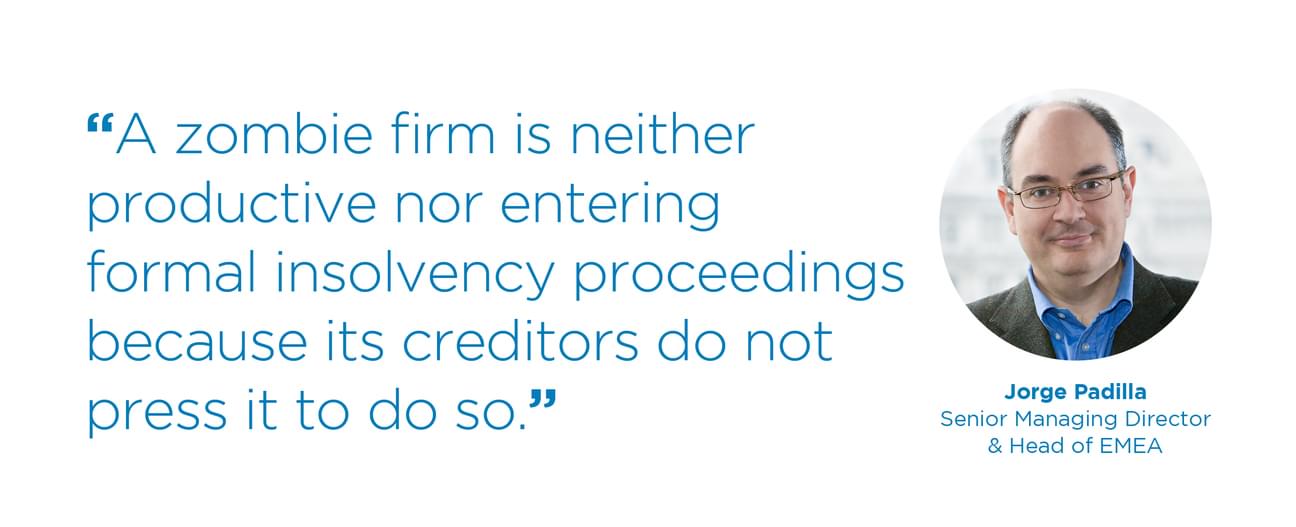The Economic Risks Posed By "Zombie" Firms

Share
Expert Economist Jorge Padilla discussed the risks that zombie firms pose to the economy and what could be done about them on a panel with speakers from the European Commission, the European University Institute, the French Competition Authority, Cleary Gottlieb, and ELIG Gürkaynak at the New Frontiers of Antitrust Conference organized by Concurrences.
Jorge Padilla defines “zombie firms” as firms that cannot recover their debt servicing costs from their current profits over an extended period. They manage to stay in business via a symbiotic relationship with banks – the latter extending their loans rather than acknowledging that these are non-performing. A zombie firm is neither productive nor entering formal insolvency proceedings because its creditors do not press it to do so. They do not engage in capital growth or investment. In terms of metrics, interest coverage ratio and Tobin’s Q (a measure of market capitalization over assets) can help identify them.
Zombie firms pose a threat to the economy as they impose deflationary measures upon it. Their lack of productivity and inability to invest and develop successful products drives the market towards excess capacity and deflated prices. This creates a negative contribution in the form of reduction of growth and profits for efficient firms. The 2008 financial crisis demonstrated that zombie firms push non-zombie firms out of the market. The latter find it more difficult to access funding from banks and investors and to grow their employment. Through the same effects, zombie firms also act as barriers to entry for new, innovative players. A higher portion of zombie firms means depressed total factor productivity, an indicator that is key to sustainable growth and incomes.
Dr. Padilla disagreed that “zombie” is an empty label. It is a well-established notion in the economic literature that central banks use, and it relies on solid metrics such as debt coverage ratios, investment, and profitability. Central banks across Europe have identified them as an issue because of the considerable resources that they drain. It is necessary that they exit the market, and merger control could be a way out. Facilitating bankruptcy could be another one, along with restructuring loans. In terms of merger control, however, the failing-firm defense does not apply here. The counterfactual here is not exit by the zombie company but rather its permanence in the market, with eternal failure to invest, low productivity, and low investment. Higher prices in the short term - following the zombie’s exit- may be necessary to ensure growth and lower prices in the future.
Watch the recording:

